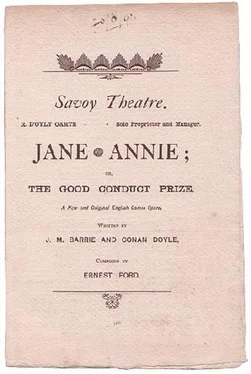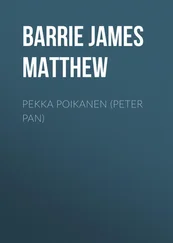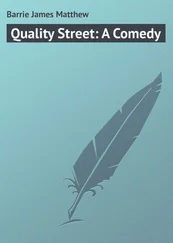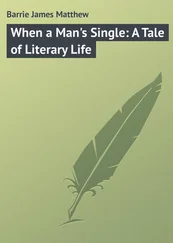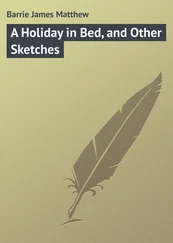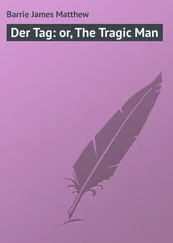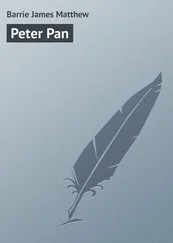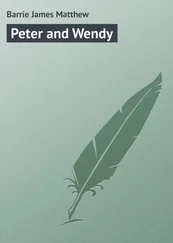Have you ever been in a bank? I had only time to glance furtively around me when we were shown into a small room. The door was quickly closed, and we were alone with the Bankers. My first reflection was that the window could not be more than five feet from the ground. Then I saw that Gilray was introducing me to the Bankers. Bankers are of medium height, slightly but firmly built, forty or forty-one years of age, and stand in an easy attitude, with nothing about them to suggest their vocation save that they keep their hands in their trouser-pockets. They have pleasant voices, but you do not catch what they say, and all that is expected of you is to bow when they have completed a sentence. You also hand over your cheques and sign your name twice on different pieces of paper, so as to give them some sort of a pull over you, and then after a last look at you which is rather trying, they hand you your cheque-book. Cheque-books are in blue covers and are of a shape which makes them wobble in the hand like a trout.
At this moment, which should have been the ‘crowning moment,’ everything threatened to go plop, for they began to talk to each other on everyday topics, leaving me out of it, and the idiotic Gilray, losing his head, collected his hat and stick. They probably saw from my face that I was not to be trifled with, and presently one asked with assumed lightness whether I would like anything now, and if so how much. I said firmly that I should like ten pounds (in gold); and I got it too, without their knowing I would have closed with them if they had said that five would be more convenient. I soon wished that I had tried them with fifteen. I did all this myself without the least help from Gilray, and then I made off quickly in a cab, dropping him carelessly at his home, for I had no further need of him.
Though you must already see that a Bank Account is a good thing to scheme for, I have not yet shown how useful it is. The ten pounds referred to is not (as those without banking knowledge may assume) all I got for my fifty-two cheques. When it was exhausted, I went back to the Bank, taking care to go immediately after I thought the officials had lunched (that I might catch them in a knightly mood). I fixed on the youngest Cashier, and in a devil-may-care sort of way, but without a word, I slipped a cheque beneath his rail. It was an anxious moment. ‘Gold or notes?’ he asked. ‘Gold,’ I said calmly. (Always be careful to say gold.) The next time I doubled the sum and got it again. I never pay for anything now, I give cheques instead. I sometimes feel that this cannot last, for I have no hold on the Bank, and some day doubtless they will find out something damaging to me in those two signatures I gave them. While it lasts, however, I know nothing equal to a Bank Account. No literary hand should be without one.”
ENVOI
THAT is how it was, except of course that Gilmour’s services had consisted in exchanging cheques with me; as he was such a good friend I naturally wanted in the article to put him in the worst light. The restaurant was the Monico and the bank Barclay’s branch in Pall Mall East. I am not sure that the sky was a dull grey, but the rest is accurate. I chanced to hear afterwards that Tennyson had read the account aloud at a garden party, and this naturally pleased me and pleases me still.
Thus, however, ends the Hat. Unless the gentle reader is dull in the uptake he will not need to be told why. As soon as you have a bank account you no longer need to have a silk hat. To cut any considerable dash in London as a freelance you must have one or the other, but it is a mark of the pretentious to have both. Such at least was my feeling, and though I continued to visit my Greenwood it was henceforth in a billycock. I was grateful for all the Hat had done for me, but relieved to be able to return it to its box, whence it has long since flown, I know not whither. I should like to think that Anon balances it once more on his head as good-luck to the newcomer whom he is awaiting at St. Pancras. I referred to it in the following words at a great dinner given to Greenwood in the year 1907 (with a bunch of violets from Mr. Meredith), when I for that occasion made a last reappearance as Anon: —
‘I dare not say in public how much I love Mr. Greenwood. He invented me. I owe almost everything to him. I bought my first silk hat to impress him the day I came to London. I never wore it except when I made my periodic advances upon the “St. James’s.” I like to think that it had its effect on him. There was a legend that he could not smoke a cigar without putting a pen-nib through it, and that he preferred your pen-nib. I do not know whether his immediate neighbours, Mr. Morley and Mr. Asquith and Lord Crewe, have pens with them this evening, but if so they are no longer the pens they were. I was only a freelance, but once I had a sublime week of assisting in that newspaper office, and Mr. Greenwood’s cigars turned my attention to smoking. I did not smoke in those days, I abominated the practice, but my game was to study his weaknesses, and so I took to writing favourably on that topic. I wrote so many articles about my lady nicotine (who was really his lady) that I made a book of them. Long afterwards I read the book and was so fascinated by its pictures of the delights of tobacco that I took to smoking. If I were writing a guide to London I — would put three stars to the name of Greenwood. There are many others of us, a whole line of anonymous Tom Smiths passing in their first silk hat, the Greenwood Hat. In honour tonight of the Beginner’s Friend we take off every hat we ever had; but, O Greenwood, it is because of those first silk hats that we love you best. They are old and battered now, but dying they salute you.’
THE END
Kirriemuir Cemetery, Angus — Barrie’s final resting place
Barrie’s grave (centre)
